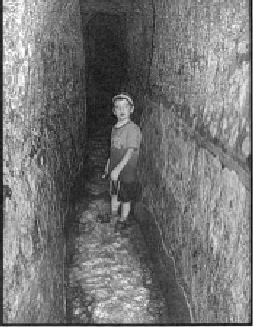A Journey through the Bible with Tiglath
72. The Second Book of Chronicles, Chapters 19 to end.
Many journeys have boring periods in them. Our journey through the Bible
is no exception, as from chapter 19 to the end of the book we have a number
of kings described. Some worshipped God: these were good kings. Others
were pagan and were wicked kings. For example, chapters 19, 20 describe
the reign of Jehosaphat — in many ways a good king. He prayed to God and
defeated his enemies.
In chapter 22 Ahaziah is a bad king, but by chapter 23 we have Joash as
king, settling down to the worship of God. So our journey continues until we
come to chapter 29 where we meet thevery good king Hezekiah, with whom
we are already acquainted as we studied him in the 2nd Book of Kings.
Hezekiah really attempted to strengthen his people's faith in God. The
measures he took are described in chapter 29. In chapter 30 Hezekiah
proclaims a great Passover feast. Verse 24 tells us: 'for Hezekiah, King of
Judah gave the congregation a thousand bullocks and ten thousand sheep.
The people enjoyed the Passover so much that it was extended from a week
to a fortnight.’
Assyria, led by Sennacherib now invades
Judah (ch 32). Hezekiah sees to the
defences of Jerusalem, building up walls
and towers etc. If a city had its water
supply cut off it soon had to surrender
and Hezekiah wasn't going to have this
happen to Jerusalem. He had a tunnel cut
through the rock under the city to bring
water from the Spring of Gihon to the
pool of Siloam. The tunnel, which still
exists, is over 1,700 feet long and 100
cubits deep (1 cubit 43 to 53cm).
As the Assyrians had wiped out the northern kingdom (Israel) one would have
expected them to conquer Judah too. This did not happen because, as the
writer of Chronicles said: `Hezekiah completely put his trust in God'. In
chapter 32 Sennacherib tries his hardest to encourage his men to defeat the
army of Judah. Hezekiah prays to God for help against the Assyrians. The
outcome is described in verse 21: 'and the Lord sent an angel, which cut off
all the mighty men of valour, and the leaders and captains in the camp of the
king of Assyria'.
So he returned with shame of face to his own land — 'and when he was come
into the house of his god, they that came forth of his own bowels slew him
there with the sword'. of the various kings continues until the last chapter.
Do read this, as it describes how Nebuchadnezzar, king of Babylon attacks
and destroys Jerusalem and carries the people away into exile. The year was
587 B.C.
Next time we begin the Book of Ezra. Ezra, Nehemiah and Esther describe
the last 100 years of Old Testament history.
